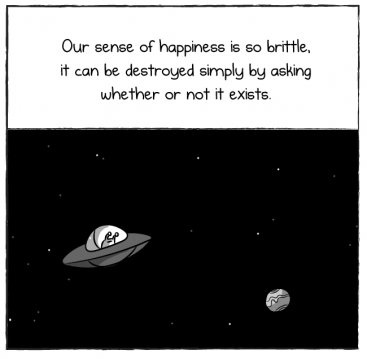By now we’ve all seen those posts on happiness or self-help; ‘10 ways to be happy today’ or ‘Best habits of upwardly mobile employees’ and the like. These titles usually make me cringe, but I click on them, because like everyone else, I’m curious about someone’s definition of happiness and how they think I can get there.
Usually one of the 10 best things is something like this: ‘Don’t spend time around negative people — they will just bring you down and make you sad! You don’t have time in your life for this — move on and do what’s right for you.’
What could be wrong with that? Is there any real reason to stay around a negative person for more time than absolutely necessary?
To truly answer that question, first we should ask ourselves what we think is meant by ‘negative person.’ I suspect it means something different for most of us, and our ideas about it will change the way we react. Is a negative person someone who is unhappy some of the time? Most of the time? Five days out of the week? A certain number of hours per day? Someone who is mean, or sad? Or just quiet? Is it okay if they’re unhappy if they have a legitimate cause for their sadness? And what does that mean?
Does a legitimate cause of unhappiness have to be a visible thing everyone can sympathize with, like a noticeable illness, or can it be something unseen, like depression or chronic poverty or a miscarriage, a divorce or an unsatisfactory career? What about a physical illness I can’t see, or a problem with a family member? How about the person who isn’t very emotive in a world used to looking for happy people in a certain type of way?
Who gets to say if sadness or anger is legitimate, and what does happiness look like, anyway?
Maybe, as artist Matthew Inman, creator of comic The Oatmeal puts it, we’re trying to use a simple word to describe a complicated concept, and we’re doing it wrong. In doing so we’re writing off a lot of people who don’t fit our ideal.
Most of us aren’t perfectly happy all the time, but we’re also usually not in a total state of despair. We’re often somewhere in between, just living life and trying to figure out where to go next. Or we’re busy, engaged, curious, passionate, or puzzled. Do those things always look like our standard definition of happy and unhappy? Probably not. Sometimes they might even look negative.
There’s not a textbook way to be human. It’s hard to tell that from the articles I read, which assure me I can life-hack my way to understanding other people. It’s not that everything in these articles is wrong. It’s that the definitions that fall outside them are deemed abnormal, something to be fixed and corrected, instead of just another way of being human.
If I’m trying that hard to be happy, seeking a position so precarious it can be shaken by the presence of a few people, maybe the problem isn’t with those other people at all. It could be with me.

We’re not very far into this and already it’s complicated — it’s going to be easier to go back to the list of 10 things and not liking to be around negative people.
It’s so much simpler, isn’t it, to say ‘I don’t like these people and I will avoid them’ than to learn what makes people tick and what true happiness is for them, which may be different than it is for me. Or to examine myself and why the idea of facing someone’s pain bothers me.
Being able to find the positive in every situation is an admirable skill. It can certainly be developed. But not everyone has it, and no one, even those who are good at finding the good, is genuinely happy all the time. Most of us have gotten good at saying this because it’s expected and acceptable.
It’s OK not to be OK, because sometimes life is hard. It knocks us down, kicks while we’re down and stomps on the pieces. The next day, or the next year, is usually better. Not always, but usually. A good friend will be there through it all, not hide from the pain of emotions that aren’t positive.
Author’s note: Sometimes, the articles are right — it’s important to practice self-care and recognize when a friendship or relationship is becoming one-sided and toxic. There’s no one rule to say when this is, but check your gut — if you’re being taken advantage of in a friendship, create some distance.






